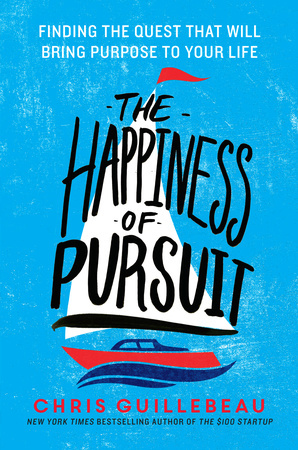
Nate Damn, a young man from Portland, Maine, had what he called a crazy idea: he wanted to walk across America. At first, the motivations for his goal were fuzzy: “It’s just something I have to do for myself,” he would say. Some of his friends thought it was awesome, but others didn’t get it. No matter.
On an early spring morning, Nate set out from Maine and began walking. Mile after mile turned into day after day, and he settled into a routine of daily progress as he left New England and steadily marched toward California.
“Once I had the idea,” he told me at the end of his seven-and-a-half month trek, “I couldn’t get it out of my head. If I didn’t attempt the walk, I knew I’d always regret it.”
Phoebe Snetsinger had raised a family in the Midwest and wanted to do something for herself. Just as she began to explore birdwatching as a new hobby, she received what was initially a terminal diagnosis of cancer. Her first thought, as recorded in her journal, was “Oh no. There are still so many things I want to do!”
Phoebe resolved to spend the rest of her life, however long it would be, traveling abroad and seeing as many birds as possible. Fortunately, she had a lot of time; the diagnosis was premature and she responded well to treatment. But Phoebe still trekked to Amazonian rainforests and African jungles, gaining confidence and going further into the wilds. By the time she died twenty years later in a car accident, she had seen more birds than anyone in the world, setting a Guinness World Record and an advocate for nature.
In some ways, Phoebe lived a stubborn life. She answered what she felt was a calling to go “all-out” for as long as she could. After that premature diagnosis, there was so much left undone—so she got to work doing it and never looked back.
I’d met Nate at the beginning of his journey, and then continued to follow along as he pursued his dream across the country. I’d heard of Phoebe and began learning as much as I could about her life, too.
I understood their motivations perfectly well. I had a similar crazy idea—to visit every country in the world before my 35th birthday. The idea came to me as I traveled independently to my first thirty countries, working as an aid worker and entrepreneur. When I compiled a list of everywhere I’d been thus far, the question struck me: “What would it be like to go everywhere?”
I accepted the fact that I might fail along the way, but if I did the failure would come from an external circumstance and not from my inability to attempt the challenge.
More than ten years ago I set out on the journey, finally coming to an end at my final stop (Norway, country #193 of 193) on the eve of turning 35. The ending was triumphant—I had no regrets and was thrilled that I’d accepted the challenge so many years earlier.
As I roamed the earth on my own quest, visiting tiny island nations and Central Asian autocracies, I found hundreds of people who’d chosen to pursue a quest or embrace a big adventure. They too had “crazy ideas” that they knew they’d regret if they didn’t try them. They often spoke of it like a calling, something they simply had to do.
Even if you don’t want to visit every country in the world or walk across a continent, thinking about what you might regret if you leave it undone can still help you. Ask yourself, “Ten years from now, how will I feel if I pursued this goal, and how will I feel if I decided against it?”
Next, take action. Carve out time to develop the work you decide is important. Set parameters around the project, just as Nate and Phoebe did. For Nate, it wasn’t just “go on a long walk”—he wanted to walk across America on a point-to-point journey.
By the time I arrived at the end of my quest, a lot of things had changed. I’d begun the journey as a solo, independent traveler, but a whole community had sprouted along the way. Now I had another challenge to deal with: the dilemma of “What’s next?”
But this was a good problem to have, and as I reflected on the fact that much of my identity came from visiting the whole world, I also realized that without pursuing the goal, I wouldn’t have had that identity in the first place.
We often think of regret as a negative emotion. But when we proactively anticipate it, and take steps to prevent it, the notion of what might be lost if we don’t take action can inspire us to do something.
Chris Guillebeau is the New York Times bestselling author of the recently released The Happiness of Pursuit: Finding the Quest that Will Bring Purpose to Your Life.
More Must-Reads From TIME
- The 100 Most Influential People of 2024
- The Revolution of Yulia Navalnaya
- 6 Compliments That Land Every Time
- What's the Deal With the Bitcoin Halving?
- If You're Dating Right Now , You're Brave: Column
- The AI That Could Heal a Divided Internet
- Fallout Is a Brilliant Model for the Future of Video Game Adaptations
- Want Weekly Recs on What to Watch, Read, and More? Sign Up for Worth Your Time
Contact us at letters@time.com